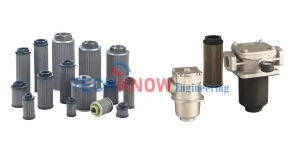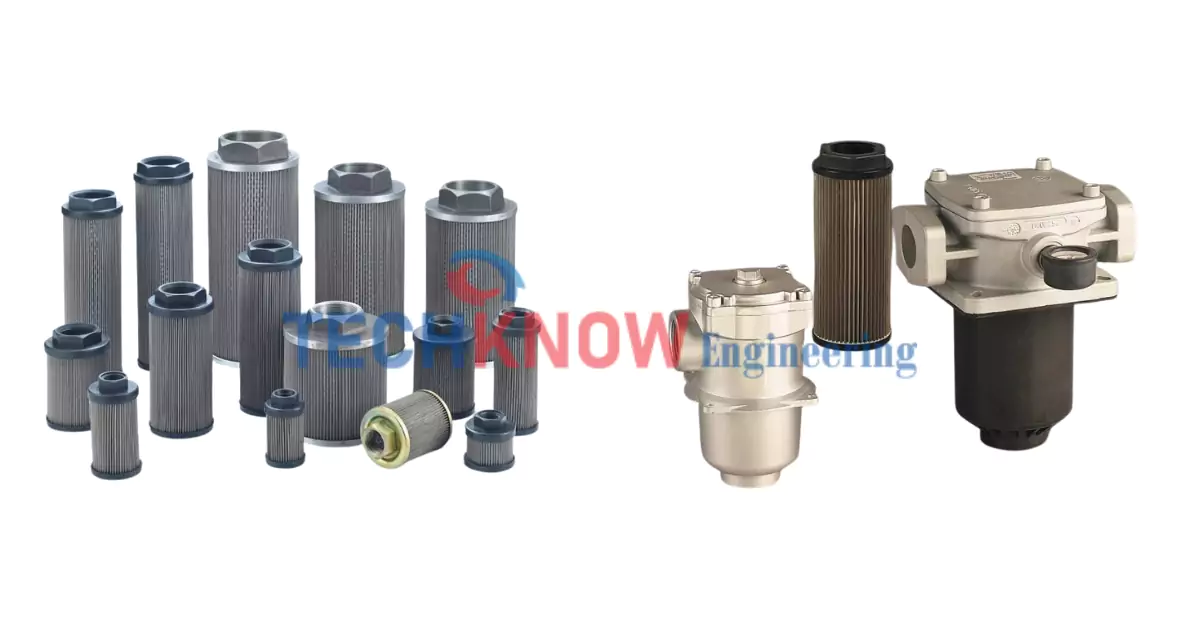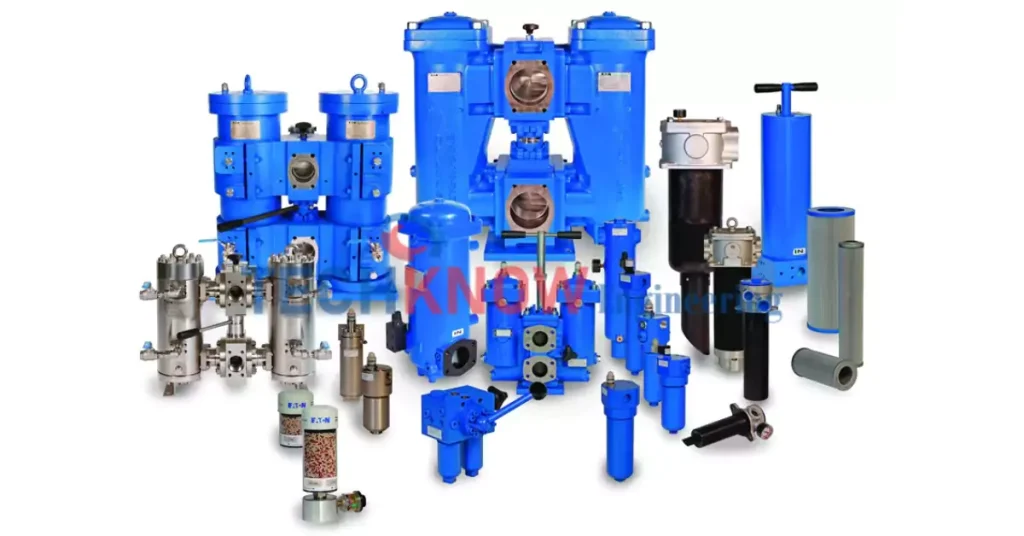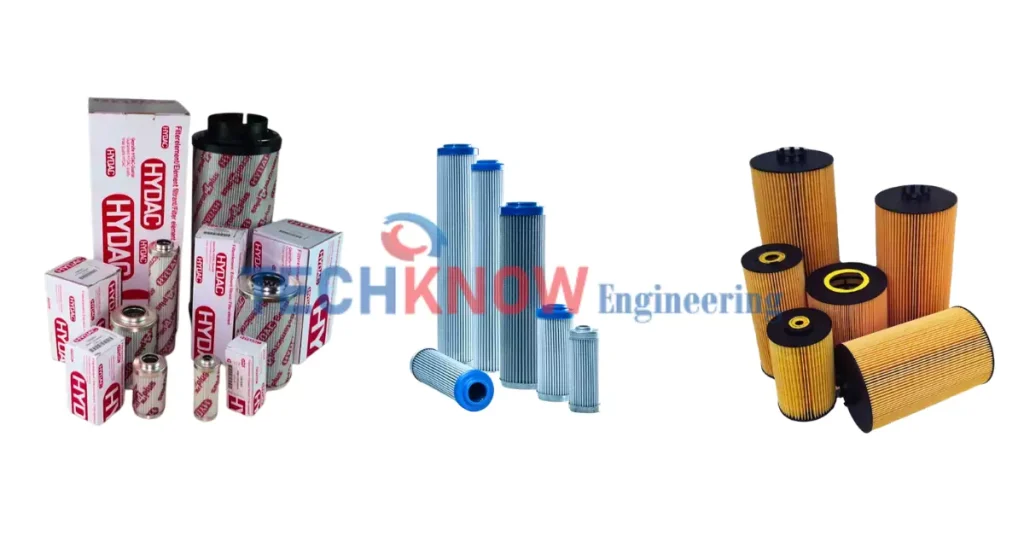What Does a Suction Filters Do? A Comprehensive Guide for Hydraulics Professionals
Hydraulic systems are integral to various industries, from manufacturing to construction. But with great power comes great responsibility, and one major concern with these systems is maintaining clean hydraulic fluid to ensure optimal functionality. This is where Suction Filters play a critical role. But what exactly does a suction filter do, and why is it essential for your hydraulic pump?
This blog dives deep into suction filters, their function, benefits, and how they safeguard your hydraulic systems. If you’re an engineer, mechanic, or hydraulics professional, this guide will help you choose, maintain, and maximize the performance of your suction filters.
The Basics of Hydraulic Systems
Hydraulic systems operate using incompressible fluids to transfer energy, typically in industrial machinery. These systems rely heavily on clean hydraulic fluid to perform efficiently. However, contamination of hydraulic fluid can compromise the system, leading to costly damages and downtime. This is where filtration systems, including suction filters, become indispensable.
What is Fluid Contamination?
Fluid contamination occurs when external particles, such as metal flakes, rust, or debris, enter the system. These particles can infiltrate during equipment installation or regular operations. Without proper filtration, contaminated fluid can damage pumps, valves, and other sensitive components.
What is a Suction Filters?
A suction filter is a protective filter installed directly into the suction line of a hydraulic pump, positioned below the minimum fluid level of the reservoir. It acts as the first line of defense, capturing large contaminants before they enter the hydraulic circuit. Suction filters are also commonly referred to as pump protection filters or safety filters.
How Do Suction Filters Work?
Suction filters are designed to trap and remove large solid contaminants as the hydraulic fluid flows into the pump. These filters prevent particles from passing through and damaging the downstream components. To ensure uninterrupted flow, many suction filters are equipped with bypass valves that prevent high-pressure drops in case of clogging.
To function effectively, suction filters must be properly sized to meet the requirements of your hydraulic system. An improperly sized filter can lead to cavitation, causing damage to the pump by reducing fluid flow.
Types of Suction Filters
Different applications call for different types of suction filters. Here are the primary variants available:
1. Suction Strainers
- Description: Fully submerged filter elements designed to collect large particulates.
- Features: Coarse mesh screens, simple installation, economical, and housed within the reservoir.
- Filtration Fineness: Available in variants such as 125, 149, or even 50/63 microns.
- Magnetic Addition: Can optionally include magnetic columns to capture ferrous particles.
2. Spin-On Suction Filters
- Description: Feature aluminum filter heads with spin-on elements for easy servicing.
- Mounting Options: Inline or flange mounting, with flow capacities up to 150 l/min.
- Usage: Ideal for mobile and industrial applications due to fast element replacement and reduced maintenance costs.
3. Suction Filter Assemblies
- Description: External filter housings used for small reservoirs or remotely installed pumps.
- Mounting Options: Inline or tank wall mounting.
- Flow Range: Typically supports 500–700 l/min, with optional clogging indicators.
Benefits of Using Suction Filters
Integrating a suction filter into your hydraulic system provides numerous operational advantages:
- Prevents Large Contaminants: Stops large particulates like rust or metal flakes from reaching the sensitive components.
- Extends Downstream Filter Life: Reduces the workload on finer filters, prolonging their service life.
- Decreases Maintenance Downtime: Minimized contamination allows for less frequent and costly repairs.
- Improves Pump Efficiency: Protects pumps from cavitation and wear, ensuring long-term operational efficiency.
- Enhances Overall System Lifespan: Cleaner hydraulic fluid translates to better system performance and longevity.
Maintenance and Replacement of Suction Filters
To ensure optimal performance, regular maintenance of suction filters is crucial. Here’s how you can maintain them:
- Inspect Regularly: Check for signs of clogging or reduced flow in your system.
- Clean When Necessary: Depending on the type of filter, clean or replace the filtering element periodically.
- Monitor Clogging Indicators: Many filters come with clogging indicators that alert you when maintenance is required.
- Follow Manufacturer Guidelines: Use the manufacturer’s recommendations for proper care and replacement intervals.
Failing to maintain suction filters can result in reduced flow, pump cavitation, and eventual system failure.
Common Problems and Troubleshooting
Even with proper maintenance, suction filters can encounter issues. Here’s how to address some common problems:
- Clogged Filters: Replace or clean the filter element immediately to restore flow.
- High-Pressure Drops: Check for aging or improperly sized filters and consider equipping the filter with a bypass valve.
- Pump Cavitation: Ensure the suction filter is correctly sized and installed to avoid restricting fluid flow.
Selecting the Right Suction Filter
Choosing the right suction filter involves considering the following factors:
- Flow Rate: Match the filter’s capacity to the system’s flow rate.
- Filtration Fineness: Determine the required micron rating based on your system’s cleanliness needs.
- Bypass Valve: Decide if your application needs a bypass valve to avoid high pressure drops.
- Material Compatibility: Ensure the filter is compatible with the type of hydraulic fluid used.
- Mounting Configuration: Depending on the system design, choose between inline or reservoir-mounted filters.
The Critical Role of Suction Filters
Suction filters are more than just optional accessories in hydraulic systems; they are essential components that protect pumps, reduce contamination, and enhance efficiency. By understanding their function, choosing the appropriate type, and maintaining them regularly, you can optimize your hydraulic systems for longevity and reliability.
Whether you’re an engineer designing a hydraulic system or a mechanic responsible for its upkeep, the right suction filter is your first guard against contamination and system failure.
To explore premium suction filter options, consider our range of hydraulic suction filters, available in various configurations to suit your specific needs. Invest in reliability, and safeguard the heart of your hydraulic system today!
Suction Filters

Ensure smooth operation and extended pump life with our high-quality Suction Filters. Installed in the reservoir before the pump, these filters prevent large particles and debris from entering the hydraulic system, reducing wear and potential failures.
Product Brand: Techknow Engineering Enterprise
Product Currency: INR
Product In-Stock: InStock
5



